Have you ever discovered an amazing article, video, or blog post—only to forget where you saved it? That’s exactly the challenge that social bookmarking solves. In simple terms, social bookmarking lets you save, organize, and manage web content in one place, making it easy to access anytime, anywhere.
But it’s more than just a personal organizer. Over time, social bookmarking has evolved into a powerful platform for SEO, traffic generation, knowledge-sharing, and trend discovery. Whether you’re a student, blogger, marketer, or business owner, mastering social bookmarking can unlock a range of benefits, from improving your online visibility to boosting brand authority.
In today’s fast-moving digital world, millions of websites and resources appear every day. Sorting through this flood of information can feel overwhelming—but social bookmarking sites let you cut through the clutter by tagging, categorizing, and sharing content with like-minded communities.
In this complete beginner’s guide, you’ll learn what social bookmarking is, how it works, the best sites to use, and actionable strategies to boost your SEO, drive traffic, and grow your online presence.
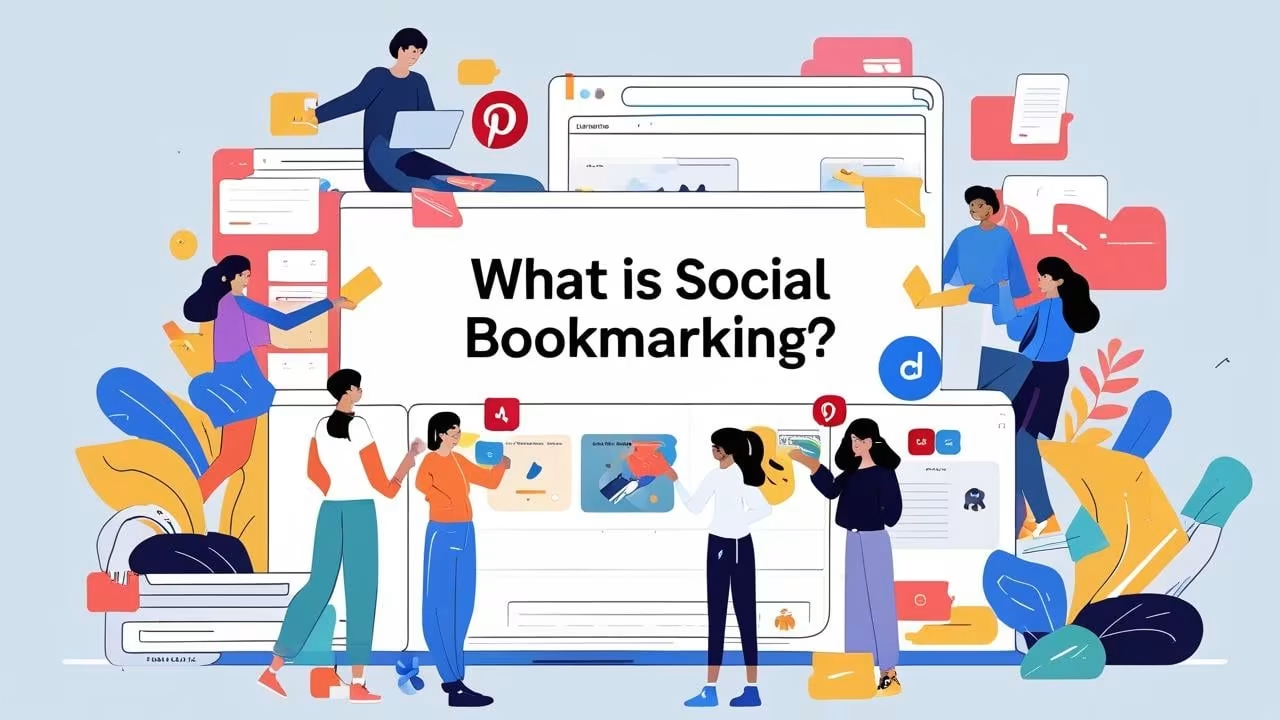
Table of Contents
What is Social Bookmarking?
At its simplest, social bookmarking is the practice of saving website links on online platforms so you can access or share them later. Think of it as a digital library for your favorite web pages. Instead of filling up your browser with endless bookmarks, these platforms let you store links online, organize them with tags or categories, and reach them from any device.
Unlike traditional browser bookmarks, social bookmarking offers several extra benefits:
-
Bookmarks are stored online, not tied to a single browser or device.
-
You can tag and categorize links for better organization.
-
Saved links can be shared publicly, helping others discover useful content.
-
Many platforms allow interaction, where users can like, comment on, or re-share links.
In short, social bookmarking is not just about saving content for yourself — it’s about sharing and discovering information within a community.
History and Evolution of Social Bookmarking
In the early days of the internet, people saved links directly in their browsers. While useful, this method had clear drawbacks:
-
Bookmarks were limited to one device
-
Managing large collections was hard to organize
-
Sharing bookmarks with others was difficult
Social bookmarking platforms changed this by storing bookmarks online and allowing users to label them with keywords (tags) for easy searching and discovery. This transformed bookmarking from a personal tool into a social and collaborative activity.
As the web expanded, several platforms shaped the evolution of social bookmarking:
-
Digg popularized user voting to promote trending content
-
Reddit grew into a massive community-driven content hub
-
StumbleUpon (later replaced by Mix) focused on content discovery, letting users “stumble” onto interesting pages
Today, social bookmarking blends content curation, trend discovery, networking, and even SEO strategy.
How Does Social Bookmarking Work?
Using a social bookmarking site is simple and user-friendly:
-
Create an account on a platform like Reddit, Pinterest, Pocket, or Mix.
-
Save links to helpful articles, videos, or resources you find online.
-
Add tags or categories such as “SEO tips,” “recipes,” or “marketing guides” to keep things organized.
-
Share your bookmarks publicly so others can discover them.
-
Engage with the community by liking, commenting, upvoting, or re-sharing content.
Over time, you build a valuable collection of resources that benefits both you and a wider online audience.
Benefits of Social Bookmarking
Easy Content Organization
Using social bookmarking, you can keep your saved links neatly categorized and accessible anytime.
Community Sharing
Unlike private browser bookmarks, social bookmarking encourages knowledge sharing. Your saved links can help others discover useful resources.
SEO and Traffic Generation
When you save and share content on platforms like Reddit or Pinterest, it increases visibility and can drive traffic to your website.
Learning and Networking
Social bookmarking communities often focus on specific niches, allowing users to connect with like-minded people.
Popular Social Bookmarking Sites
Some well-known social bookmarking platforms include:
- Reddit – A massive community-driven platform where users share and discuss links.
- Pinterest – graphical bookmarking site for images, recipes, design ideas, and more.
- Digg – Focuses on trending articles and stories.
- Slashdot – Popular for technology and science-related news.
How Social Bookmarking Helps SEO
For website owners, bloggers, and digital marketers, the question is not just what is social bookmarking, but also how it can support search engine optimization (SEO). Social bookmarking has evolved from being a personal tool for saving links into a practical strategy for boosting visibility, traffic, and brand reputation. Let’s break down exactly how it helps with SEO.
Backlinks: Building Authority Through Social Bookmarking
Backlinks, also known as inbound links, are one of the most important factors that search engines consider when ranking a website. When you share your content on social bookmarking platforms, many of them provide “do-follow” backlinks. These links tell search engines that other websites (in this case, bookmarking platforms) trust your content enough to reference it.
For example, submitting a blog post on Reddit or Mix can give your article a better chance of being discovered and linked to by other bloggers, further improving your backlink profile.
Increased Traffic: Expanding Your Reach
Imagine you write a fantastic blog post but it only gets seen by a handful of people. That’s where social bookmarking comes in. By saving your articles on platforms like Pinterest, Digg, or Reddit, you open the door to millions of active users who are constantly looking for fresh content.
Even if a small percentage of users engage with your bookmark, it can still result in significant traffic to your site. This traffic is not only valuable for page views but also for potential conversions—whether that means newsletter sign-ups, product purchases, or inquiries about your services.
Consistent bookmarking can turn into a steady traffic source over time, especially if you focus on platforms that match your niche.
Faster Indexing: Helping Search Engines Find Your Content Quickly
When you publish a new blog post, it can sometimes take days or even weeks before search engines discover and index it. Social bookmarking helps solve this issue. Since search engines frequently crawl popular bookmarking platforms, your shared links are often picked up much faster.
For example, if you submit a blog post to a well-indexed site like Reddit, there’s a strong chance Google will crawl and index that link within hours. This quicker indexing gives your content a head start in competing for rankings.
Brand Awareness: Building an Online Identity
Another underrated benefit of social bookmarking is brand awareness. By consistently sharing high-quality content, engaging with communities, and tagging your bookmarks properly, you start to establish a reputation. Over time, people begin to recognize your name or brand as a reliable source of information in your niche.
For instance, if you’re regularly bookmarking articles about digital marketing tips, people in those communities will start associating your name with expertise in that field. This reputation not only drives traffic but can also lead to networking opportunities, collaborations, or even business partnerships.
So, the next time you ask yourself what is social bookmarking, remember—it’s not just about saving links, it’s also about creating opportunities to enhance your SEO strategy, gain visibility, and build authority online.
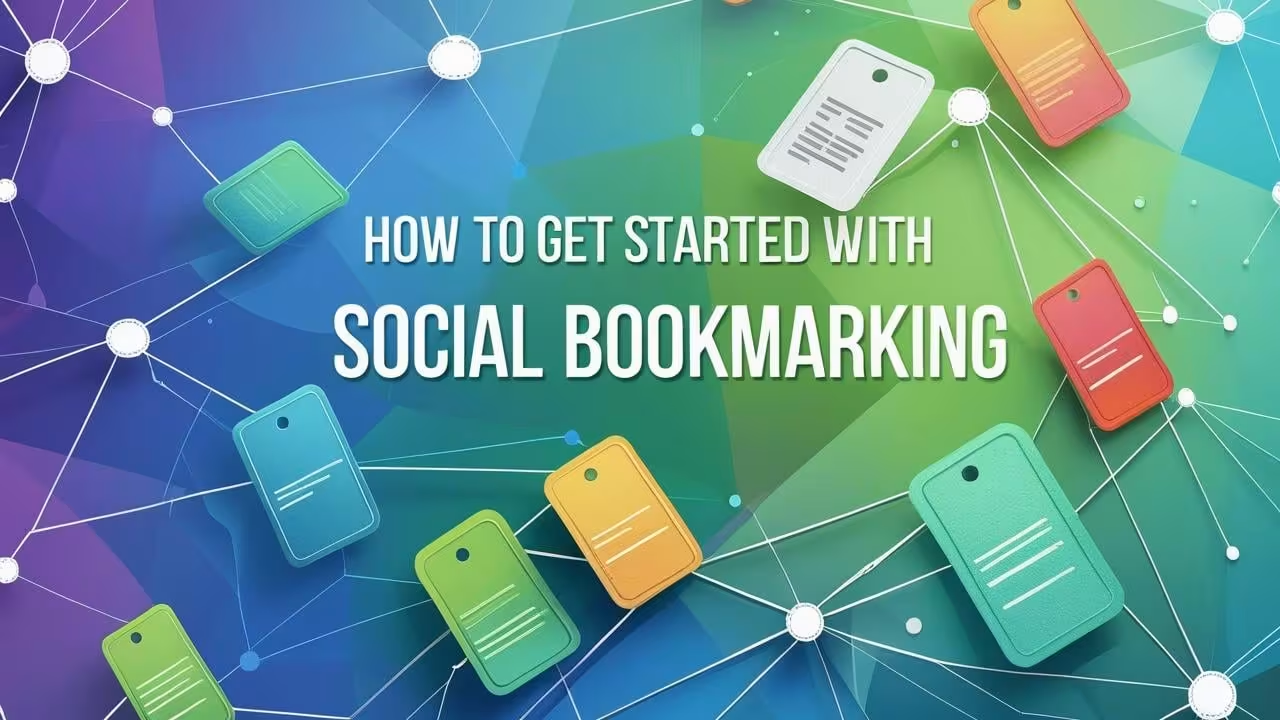
How to Get Started with Social Bookmarking
Now that we’ve explored how social bookmarking helps SEO, the next step is to understand how to actually use it effectively. If you’re a beginner and wondering what is social bookmarking and how to get started, here’s a detailed step-by-step guide.
Choose the Right Platform for Your Goals
Not all bookmarking sites are the same. Some are general-purpose, like Reddit or Mix, while others focus on specific niches, like Pinterest for visual content or Slashdot for technology news.
If you’re a food blogger, Pinterest may be your best bet. If you write about tech news, Digg or Slashdot may work better. The key is to match your target audience with the right platform.
Start by Saving High-Quality Links
Before promoting your own blog or business website, begin by saving links to other valuable resources in your niche. This shows that you’re genuinely interested in contributing to the community, not just self-promotion.
For example, if you’re in the digital marketing field, save links to helpful SEO guides, industry news, or case studies. Over time, this builds trust and makes your audience more open to engaging with your own content.
Use Descriptive Tags and Categories
One of the biggest advantages of social bookmarking is the ability to organize content using tags. Tags are keywords or labels that describe the topic of your bookmark.
For example, instead of tagging your blog post simply as “marketing,” you could use tags like “SEO tips,” “content marketing,” or “digital advertising.” Descriptive tags not only make your content easier to find but also increase the chances of it appearing in search results within the platform.
Engage with the Community
Social bookmarking is not a one-way street. If you only drop links and never interact with others, your profile will look spammy. Take time to like, comment, and share content from other users. Join discussions, provide feedback, and contribute valuable insights.
Communities thrive on interaction, and when people see you engaging genuinely, they’re more likely to support your bookmarks too.
Share Your Own Content Strategically
Once you’ve built some credibility, you can start sharing your own blog posts or website content. A good rule of thumb is to share one of your own links for every three to four external links you save.
This ratio prevents you from appearing self-centered and helps you maintain a good standing in the community.
Common Mistakes to Avoid in Social Bookmarking
- Spamming – Posting too many self-promotional links can lead to account bans.
- Ignoring Community Rules – Each platform has its own guidelines; not following them can hurt your credibility.
- Poor Tagging – Using irrelevant or generic tags makes your bookmarks harder to find.
- Inconsistency – Posting once and disappearing won’t help; regular activity is key.
Social Bookmarking for Students and Professionals
Students can use social bookmarking to save research papers, academic articles, and other valuable resources, making study and project work more organized and efficient. By tagging and categorizing links, students can create a personal digital library that’s easy to navigate and access from any device. This approach not only helps with coursework but also encourages discovering additional resources that may have been overlooked, improving overall learning outcomes.
Professionals, on the other hand, leverage social bookmarking to stay updated with industry news, track trends, and network with peers. For example, digital marketers and content creators often rely on social bookmarking sites to monitor competitor activities, discover new tools, and gain insights that improve their SEO strategies and drive traffic to their websites. Beyond marketing, professionals in tech, finance, and education can use bookmarking platforms to collaborate, share best practices, and build credibility within their niches.
Additionally, using social bookmarking consistently helps both students and professionals develop a habit of curating high-quality content, making it easier to reference later, share with others, or incorporate into reports, presentations, or projects. Over time, this not only saves time but also strengthens your online presence and knowledge base.
Personal Experience: Why I Use Social Bookmarking
Speaking from personal experience, I, MHD Rashid, find social bookmarking to be an essential part of my online routine. It not only helps me save and organize valuable links but also exposes me to fresh perspectives from different communities. On top of that, I’ve seen how consistent bookmarking and sharing can bring traffic to a website.
The Role of Social Bookmarking in Digital Marketing
Digital marketers often ask: is social bookmarking still relevant? The answer is yes. While not as dominant as social media platforms, bookmarking sites remain important for niche marketing, SEO, and content distribution strategies.
Tips for Beginners in Social Bookmarking
- Start small—pick one or two platforms.
- Be consistent with your engagement.
- Focus on quality over quantity.
- Avoid being overly promotional.
- Use social bookmarking as both a learning tool and a promotional tool.
Master Social Bookmarking to Boost SEO & Traffic
Now that you understand what social bookmarking is, it’s clear that it’s much more than simply saving web pages. It’s a smart way to organize, share, and discover valuable content while connecting with communities that share your interests. For beginners, social bookmarking opens the door to effective online knowledge management, improving your digital presence, and boosting SEO.
Whether you’re a student, blogger, or business owner, social bookmarking sites provide a simple yet powerful way to track useful content, share it with others, and enjoy multiple benefits—from increased website traffic to stronger online visibility. When used strategically, bookmarking can become a key part of your digital marketing toolkit.
From popular platforms like Pinterest and Reddit to niche sites like Slashdot, opportunities are endless. The key is to engage actively, follow community guidelines, and share meaningful, high-quality content. As MHD Rashid, I encourage you to start today—create your account, save your first bookmark, and see how this simple habit can transform your online strategy and growth.
So, the next time you ask yourself, “what is social bookmarking?” remember—it’s not just a tool, but a proven strategy to drive traffic, improve SEO, and grow your presence both personally and professionally in the digital age.
Author ; MHD Rashid
Learner of Digiskillzz, Digital Marketing Institute in Kochi.
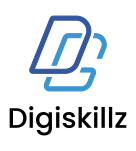

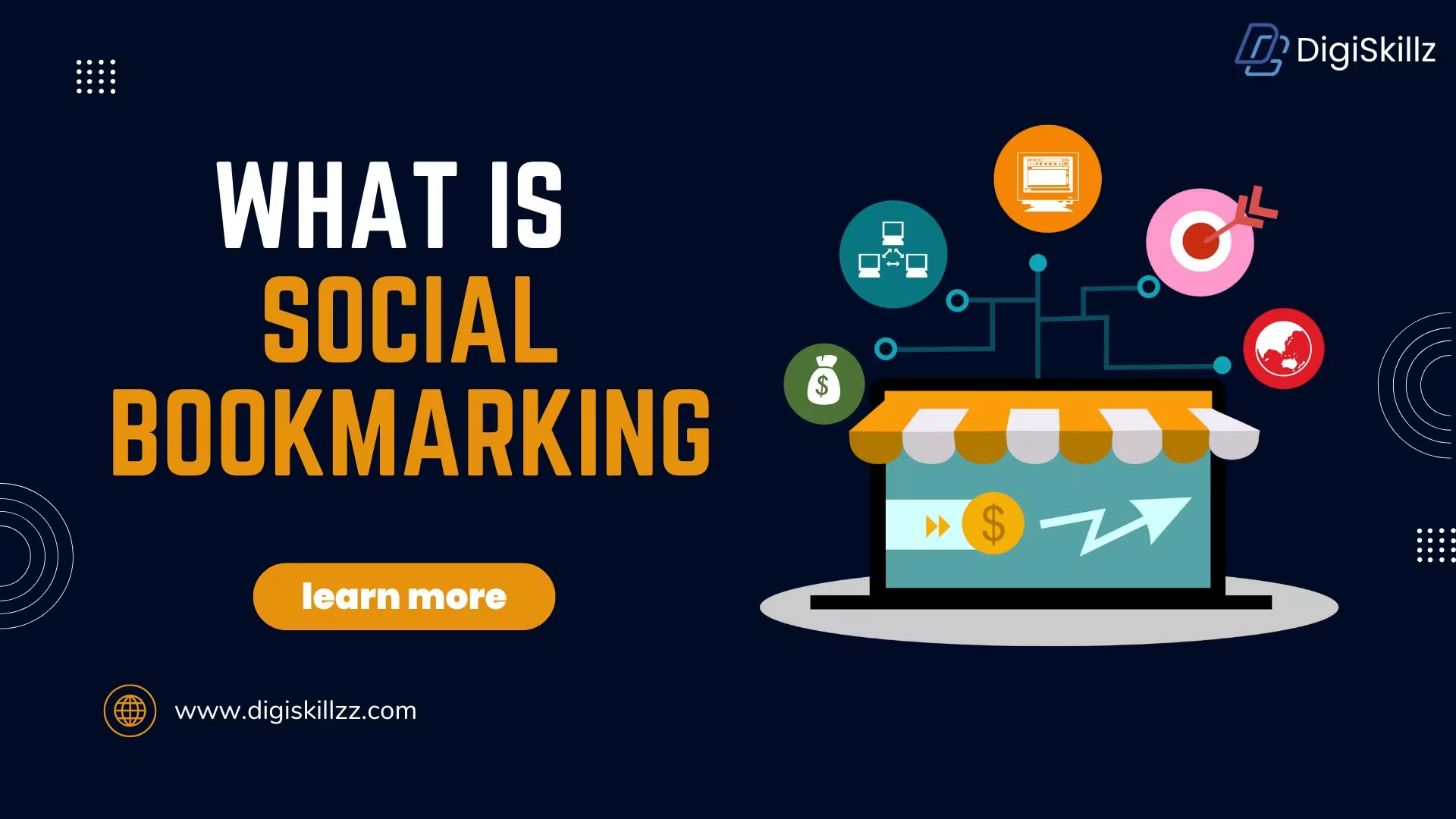
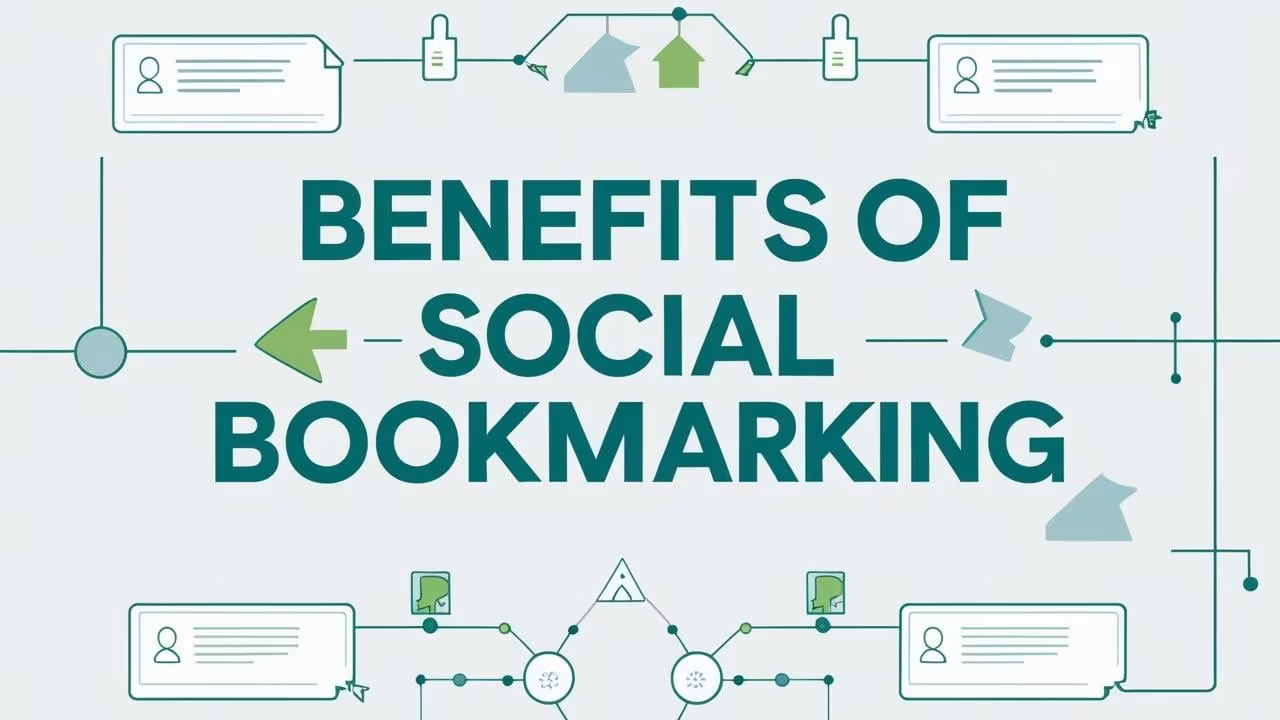
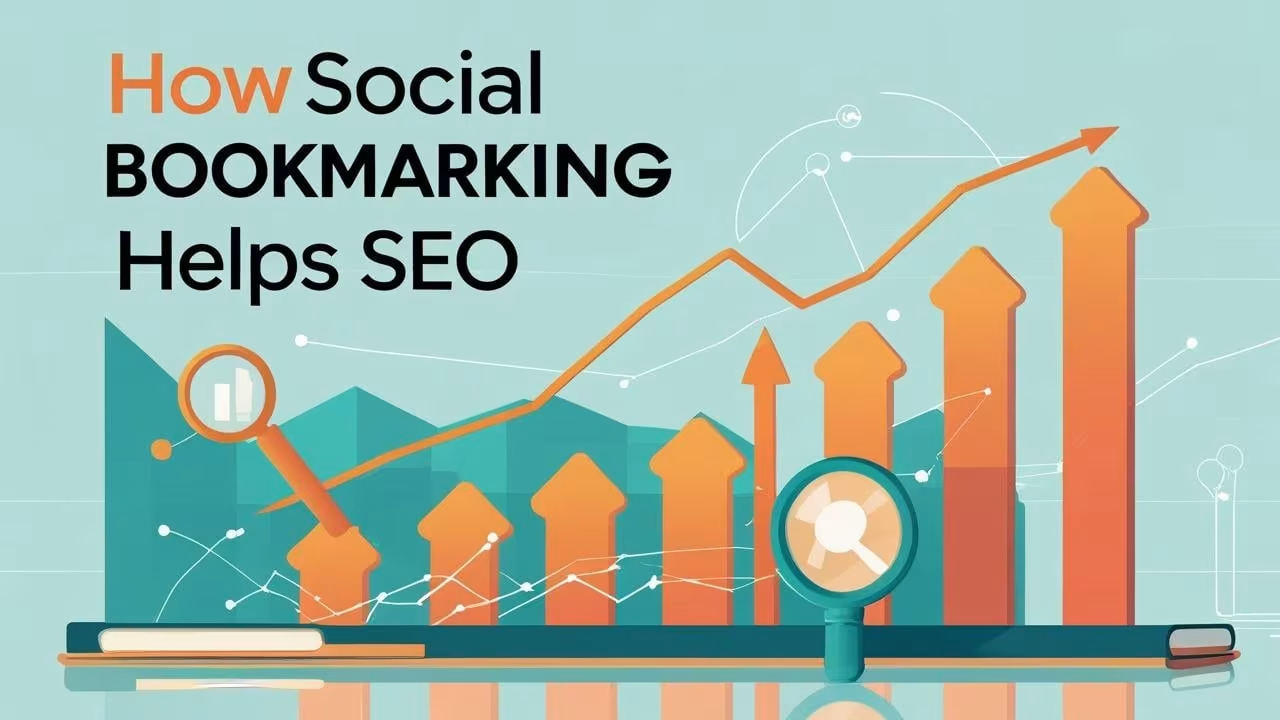
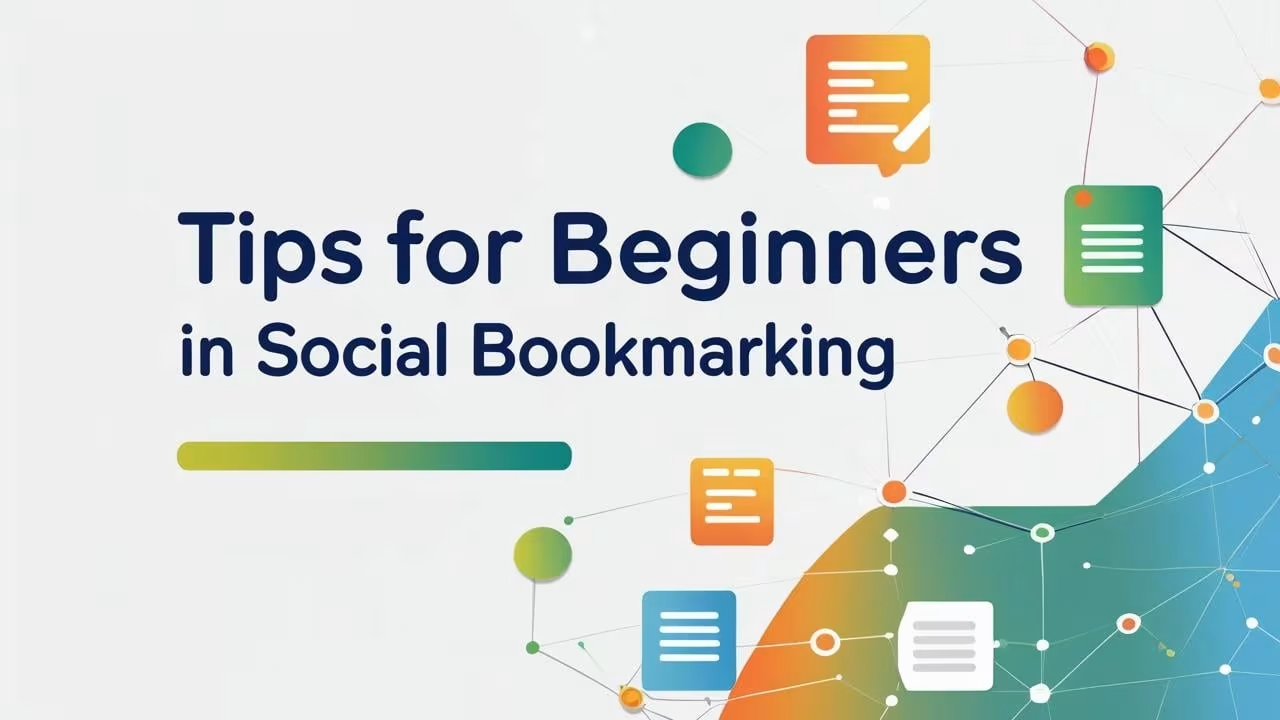




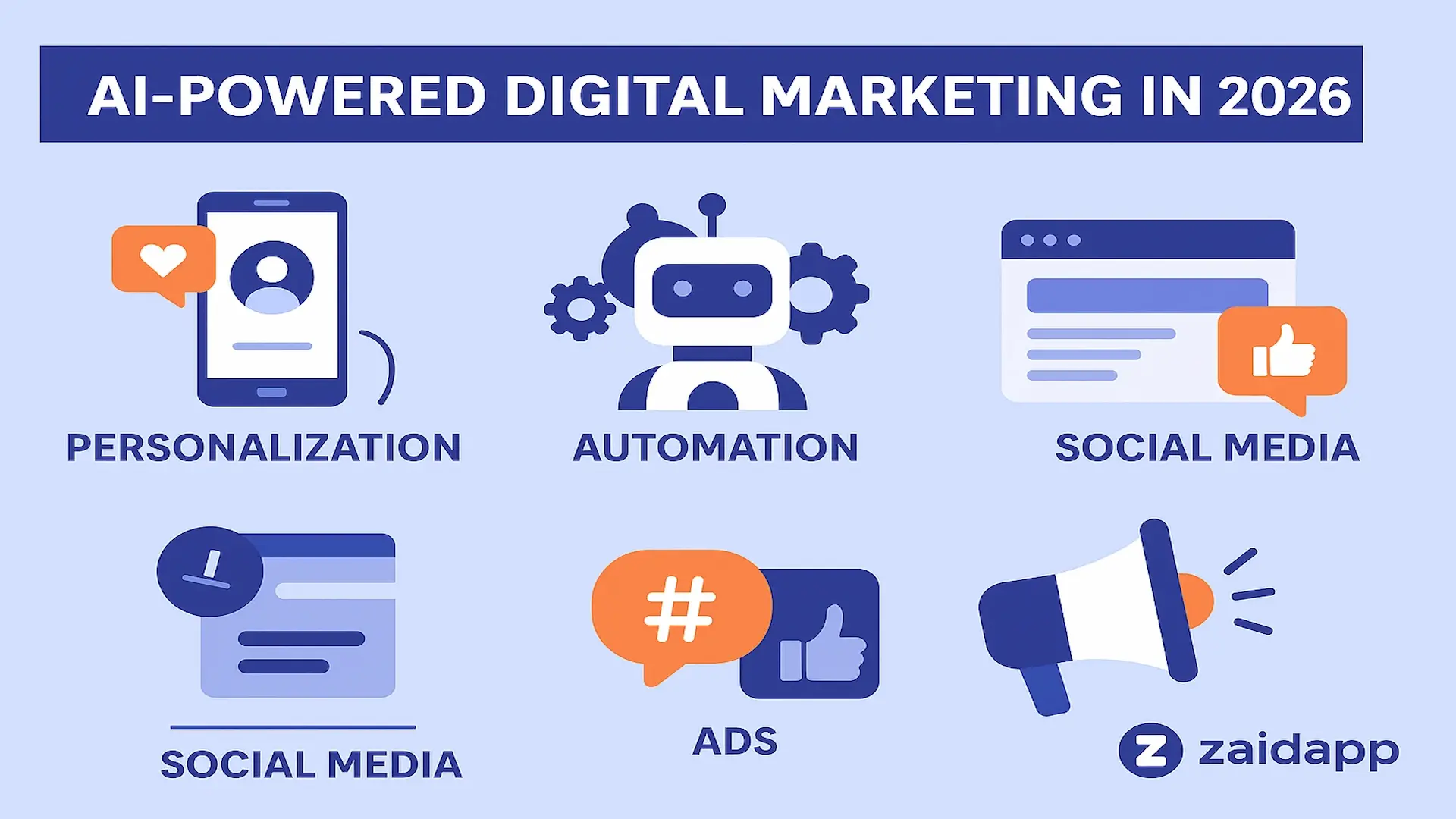
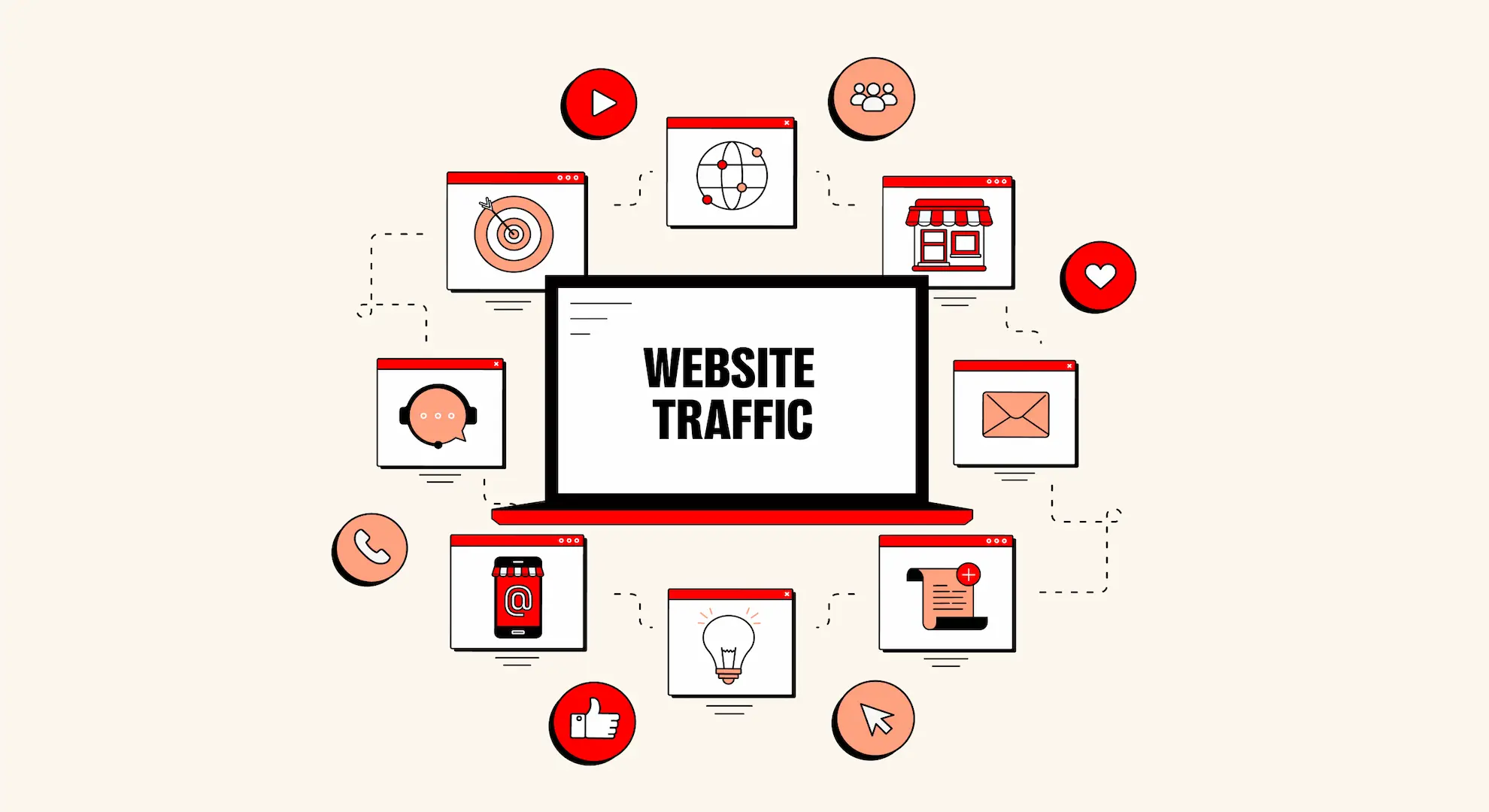


Leave A Comment